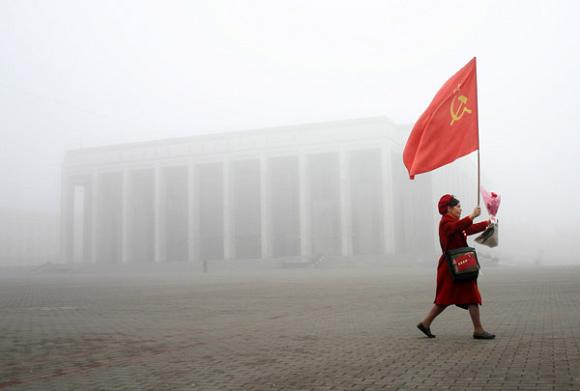It was the biggest protest action against president Lukashenko’s rule to date. That night, all hope of progress was shattered as we saw police forces batter the protesters and arresting them by the hundreds. Presidential candidates, opposition leaders, civil society leaders and unorganized citizens were all herded into vans and brought to prison. Thousands fled, running away from soldiers and police beating indiscriminately. The brutal treatment of the protesters marked the beginning of a relentless persecution of any kind of opposition against the totalitarian rule of Lukashenko that still continues.
Ales Bialiatski, leader of the Human Rights Centre Viasna who for years has helped the victims of the regime and in particular those imprisoned, was himself convicted to four and a half years of hard regime incarceration a year ago, and is victim of severe restrictions even in prison. The office premises of Viasna were confiscated last November. Former presidential candidate Mikalai Statkevich is still in prison. Former candidate Andrei Sannikov was released and found himself forced to leave the country, leaving behind a wife, prominent journalist Irina Khalyp in house arrest, and a little son. Along with him, several others among the best of the Belarusians have been forced to leave. Activists Eduard Lobau, Zmitser Dashkevich and Pavel Seviarynets are all convicted to long prison sentences – together with a total of fourteen political prisoners. They wished to serve and to contribute to a better Belarusian society. For this, they have all been put behind bars or pushed out of their home country.
-We are seeing a worrying tendency in Europethat the interest in Belarus is waning, Secretary General Bjørn Engesland of the Norwegian Helsinki Committee says. -We are pleased there are sanctions in place to put pressure on the regime, but we must continue engage actively in joint efforts for a change to the better in our neighboring country Belarus. Even though it takes time to see changes come through, we must not stop trying. – We believe that also Norway could play a more active role in this.
We are very pleased that a UN Special Rapporteur for Belarus has been appointed; hopefully his efforts will result in a new engagement for change and increased pressure on president Lukashenko.
The opportunity to influence this country is still there. The crack-down against anyone opposing him is maybe more than anything a sign that he is feeling vulnerable. Belarus is a country constantly on the brink of a crisis.
In Belarusian prisons, political prisoners risk extreme psychological pressure, many have been mistreated and the health of several of the imprisoned has deteriorated. We are very concerned about the health and well-being of the political prisoners. They live under bad conditions; some of them with restricted access to families, lawyers and foodparcels.
We reiterate our previous claims that Norway and a united Europe should
• Insist on the unconditional release of all political prisoners and restorations of all civil rights as a condition for further dialogue with Lukashenko and his regime, and to stop further arrests and harassment of human rights defenders and activists;
• Step up the engagement with Belarusian civil society and the opposition forces. Until all political prisoners are released, these are the ones you invite for discussions about the future of Belarus as a full member of Europe in preparation of the future in post-Lukashenko Belarus;
• States and Human rights institutions must join forces for a strategy in support of democracy in Belarus and to increase the pressure against the current regime. The UN Special Rapporteur for Belarus, the Rapporteurs of the Assembly of the Council of Europe, together with the Office of the UN High Commissioner for Human Rights, UN special rapporteurs and working groups as well as the OSCE PA could engage in regular cooperation on the situation in Belarus;
• We support sanctions against Belarus and encourage European states to be prepared for the changes that are bound to come and do not give up the hope.
